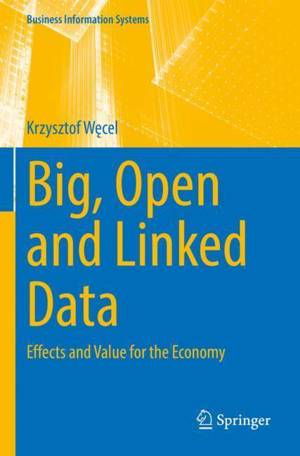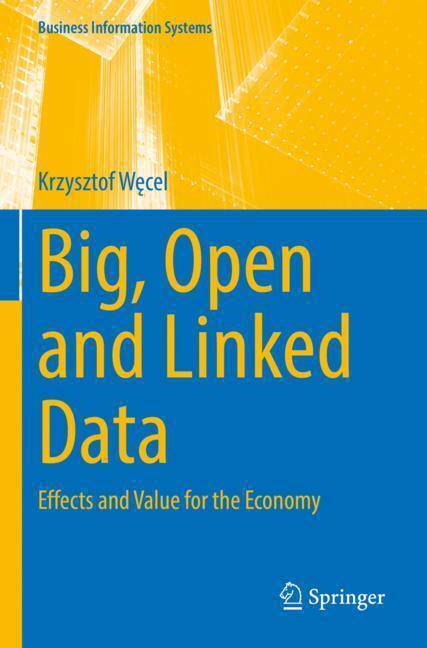
Door een staking bij bpost kan je online bestelling op dit moment iets langer onderweg zijn dan voorzien. Dringend iets nodig? Onze winkels ontvangen jou met open armen!
- Afhalen na 1 uur in een winkel met voorraad
- Gratis thuislevering in België vanaf € 30
- Ruim aanbod met 7 miljoen producten
Door een staking bij bpost kan je online bestelling op dit moment iets langer onderweg zijn dan voorzien. Dringend iets nodig? Onze winkels ontvangen jou met open armen!
- Afhalen na 1 uur in een winkel met voorraad
- Gratis thuislevering in België vanaf € 30
- Ruim aanbod met 7 miljoen producten
Zoeken
€ 105,45
+ 210 punten
Uitvoering
Omschrijving
This book examines the recent evolution of the concept of data as an economic and managerial phenomenon. The author first describes and discusses open data and then introduces the concept of linked data, with a focus on assets for reuse. Furthermore, he addresses the main challenges of big data. Value is identified as the main incentive for the adoption of linked data; accordingly, the next two chapters study sources of data value from a macroeconomic and micro economic perspective, respectively. This contributes to the systematization of important issues at the crossroads of enterprise data and data sharing: data ownership, personal data, and data privacy. In turn, the book reveals the role of innovation as a main vehicle for creating value by unifying big, open, and linked data. It studies the ways in which value can be created, transferred, and captured in the form of business models, before the closing chapter verifies the data unification model by combining open and linked geographical data with big data from a major telecom company.
Specificaties
Betrokkenen
- Auteur(s):
- Uitgeverij:
Inhoud
- Aantal bladzijden:
- 256
- Taal:
- Engels
- Reeks:
Eigenschappen
- Productcode (EAN):
- 9783031071492
- Verschijningsdatum:
- 26/09/2023
- Uitvoering:
- Paperback
- Formaat:
- Trade paperback (VS)
- Afmetingen:
- 156 mm x 234 mm
- Gewicht:
- 390 g

Alleen bij Standaard Boekhandel
+ 210 punten op je klantenkaart van Standaard Boekhandel
Beoordelingen
We publiceren alleen reviews die voldoen aan de voorwaarden voor reviews. Bekijk onze voorwaarden voor reviews.











